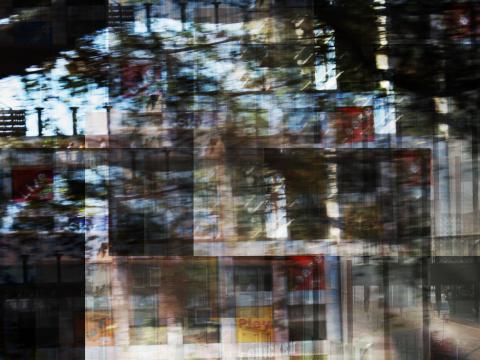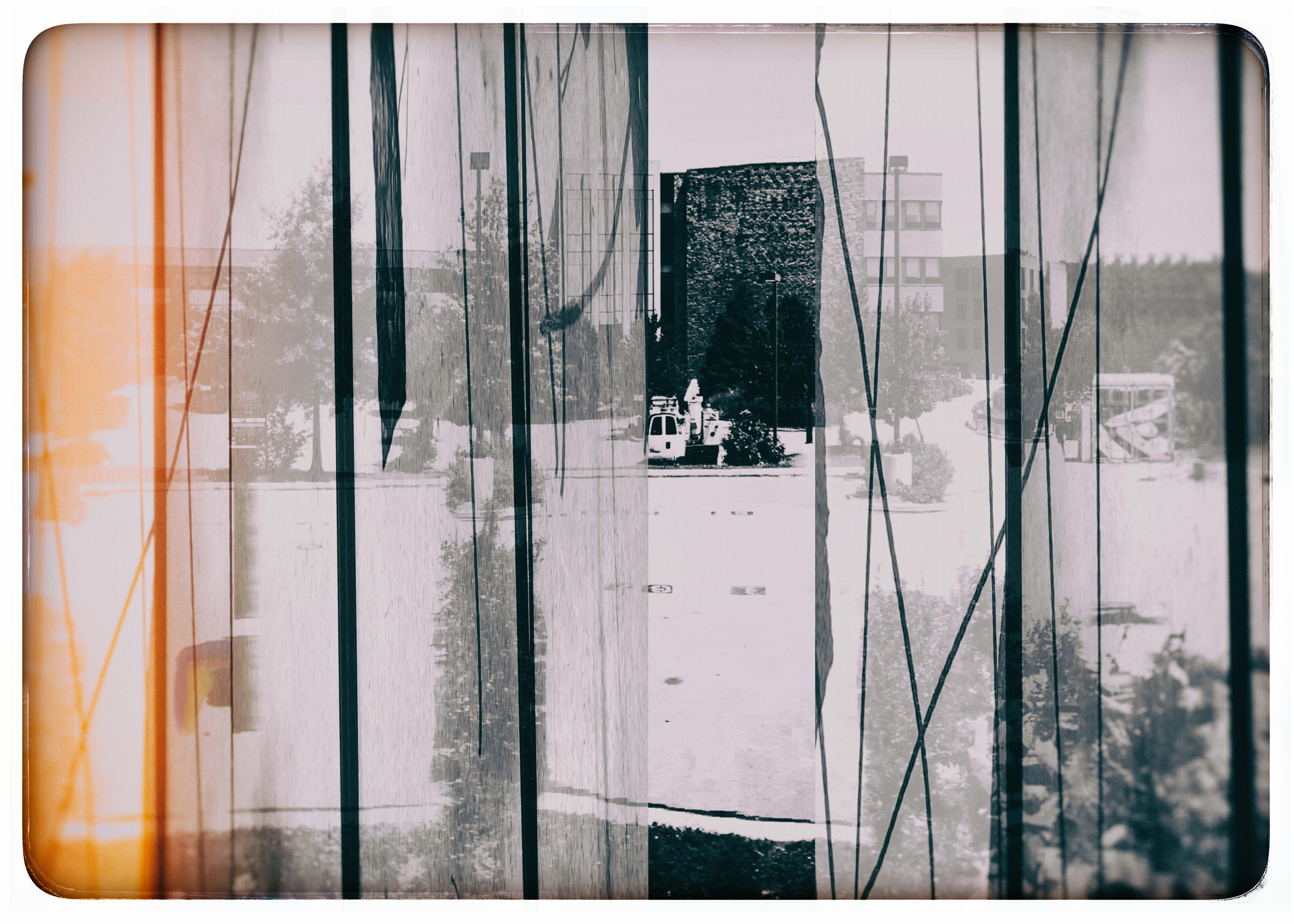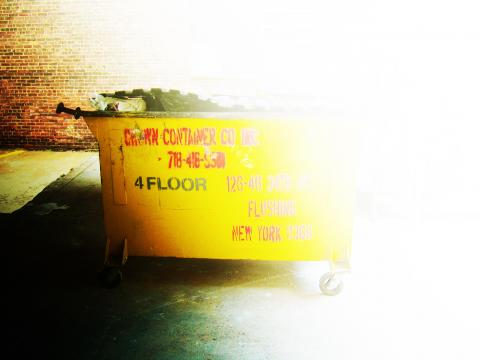“Let us be fragile for we are not the ocean”
- Eduardo Milán trans. Patrick Madden & Steven J. Stewart

Paul Hawkins and Julia Rose Lewis began their visual poetry collaboration by exchanging digital archives of traveling through America at times when they both felt overwhelmed. The project was conceived over email and has been progressing through the use of Dropbox, more email, Google Drive, Photoshop, Affinity Photo and Twitter. It started with the simple realization that we tend to document difficult times in our lives. We create archives of ourselves to revise at a time when we are less overwhelmed. The archives take cities and highways as their subject matter with anonymous humans as background objects. The images show that somehow we keep going and yet our flaws keep following us despite the fact that we kept going. Is there a genetic component to being easily overwhelmed or to being easy?

We know we are very easy to very easily overwhelmed. If whelm originally meant to overturn, then a vessel is implied here. To overwhelm is to over-repeat turn a vessel. Turning over an engine gets a motorboat started, and yet overturning a boat pauses or stops the boat in the water. Exchanging our personal archives felt like turning over an hourglass. The passage of sand back and forth and back and forth is a soothing and subtle reference to death. The pattern of sand grains runs on the hourglass. Of course, our bodies are not a closed system and we cannot just turn ourselves over to do a headstand. We gave our collected documents over to each other. The hard documents, if I may say, are meticulous; they are massive archives. They are overwhelming to view and overheating a laptop to download. Paul once promised Julia that he would do a headstand for the price of eight coffees and a wall.

Paul and Julia have created a third archive of their shared visual poetry with the intention of organizing the visual poetry into a collection exploring the nature of travel, technology, memory and place and what it means to be easily overwhelmed in twenty-first century America. We concluded that balancing the past, the present and the future is somewhat akin to air traffic controllers guiding/marshalling their responsibilities into holding patterns, until circumstances are right for them to move on. This work harnesses technology to share, re-think, appropriate, re-designate, re-document, de-memorialise. Taking place deep within this collaborative exchange is a remarkable transformation; placing those memories/circumstances/emotional responses in holding patterns until each of us feels ready to move on.

Eduardo Milán, Selected Poems, trans. Patrick Madden, Steven J. Stewart, John Oliver Simon (Bristol: Shearsman, 2012)
